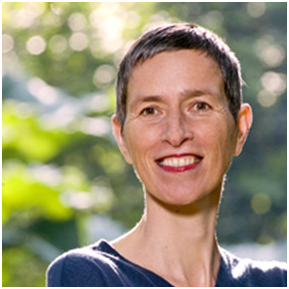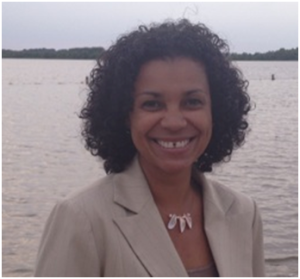Despite a growing awareness of patients’ crucial part in contributing to healthcare, the ways by which this can be achieved are still limited. For patients’ innovative power to be efficiently utilised, we strongly believe that patients need to be given a more equal and profitable role in the healthcare system.
By “equal,” we mean that the crucial information patients and carers can potentially provide for the transformation of healthcare must be acknowledged to be on equal terms with the information healthcare professionals are providing.
A profitable role can be either monetary or non-monetary. If patients are to have a profitable role in healthcare, an economic evaluation of the input of patients—with analysis of the positive impacts it’s had on other patients’ lives, organisations, and society—is needed. This is especially the case for those patients and carers for whom it is not their formal job: who have taken on the responsibility of collecting, reading, and reviewing information and historical data on their disease and come up with relevant insights and ideas. Whether this feedback is to skip or add steps in a care process, or commenting on experiences of additional treatments, it can contribute positively to the management of their disease and the lives of other patients.
We envision four business models that would economically value patients’ contributions to improving healthcare, and empower them to operate as active partners.
The simplest model is a realistic payment per hour system, with rates and conditions similar to freelance healthcare professionals. This could be applied for patients who are providing benefits to a wider community: by being active in focus groups, as in-depth interviewees, by acting as participants in patient panels, by speaking at conferences, by providing education for healthcare professionals, by mentoring other patients, or by working on the development and/or implementation of research and care protocols.
Another model is shared savings, which allows cost savings to be partly shared among those who have helped make the saving. In the Netherlands, the Friesland and Menzis health insurance companies recently introduced shared savings for doctors who are able to lower the costs of treatments. We suggest that often patients can contribute to more efficient care, just as doctors can, and this should be rewarded by a shared savings model. Shared savings can be applied when the valuable input of patients is utilised to improve treatment protocols, which are of enormous value for other patients and, at the same time, reduce costs. Patients can give information on major changes in, for example, food and lifestyle, additional treatments, sense giving, and sharing their own collected historical data, which supports the effective choice of a treatment.
A third model can be drawn from the recent intellectual property claim of the KWF Cancer Foundation. For newly developed medicine funded by their foundation they claim partial intellectual property rights. The revenues will be invested in new research projects. Part of these revenues could also be used for reimbursing patients for their active input into research topics on developing new medicines.
The last model is based on benefit sharing. The essence of benefit sharing is to provide a fair and equitable sharing of the benefits of an activity, and so when patients, for example, contribute to research that leads to subsequent grants for further research or the development of medical interventions, then they would be rewarded. Benefits may be monetary or non-monetary. A monetary example could be the sharing of royalties, while a non-monetary benefit could be that a patient or patient’s society is mentioned as a co-author in research papers or medical articles.
New business models that include patients as equal actors in problem solving strategies for healthcare are necessary to utilise patients’ innovative driving force. The introduction of a business model—such as benefit sharing, reimbursing payment, shared savings, payment per hour, or any other innovative concept that may be developed—can further realise the potential of patients to transform healthcare, so that it is of a high quality and affordable. We welcome all proposals that will assist organisations to implement this change, so that patients can contribute as equal partners.
 Carla Peeters is an entrepreneur in transforming healthcare. After she healed from a complex pattern of illnesses she started Good Care Feels Better.
Carla Peeters is an entrepreneur in transforming healthcare. After she healed from a complex pattern of illnesses she started Good Care Feels Better.
I have read and understood BMJ policy on declaration of interests and declare the following interests:
Last 36 months and current:
• Previously, the CEO of healthcare organisations covering childbirth, care for children and youth, rehabilitation, chronic and neurodegenerative diseases.
• Initiating research projects bridging Western and Eastern Medicine with hospital and research institutes. Unpaid.
• Owner and director Carla Peeters www.carlapeeters.nl.
• Initiator and co-creator Personalised Integrative Care, integrating Ayurveda and complementary and alternative medicine in conventional medicine.
• Coaching patients with chronic and complex illness on personalised food and lifestyle, personal medical records, and navigating the healthcare systems.
• 10 March 2015 onwards
Member of the Commission on Economic Policy and Health VNO-NCW (the largest employers society of The Netherlands). Unpaid.
 Chantal Gill’ard is a Dutch ex-politician who healed from breast cancer and now works as a social entrepreneur in childbirth.
Chantal Gill’ard is a Dutch ex-politician who healed from breast cancer and now works as a social entrepreneur in childbirth.
I have read and understood BMJ policy on declaration of interests and declare the following interests:
Last 36 months:
Consultant to Nutricia.
EUPATI project officer at VSOP—Dutch Genetic Alliance.
Board member Dutch Genetic Alliance—unpaid.
Current:
Director, Birth Circle.
Consultant on nutrition and health, The Patients Network for Medical Research and Health (EGAN).
Chair Supervisory Board Dunya Health & Care.
Chair Steering Committee on Health Technology Foresight at The Netherlands Study Centre for Technology Trends (STT)—unpaid.
Inspire 2 Live patient advocate—unpaid.
Co-initiator Platform Patient and Food—unpaid.